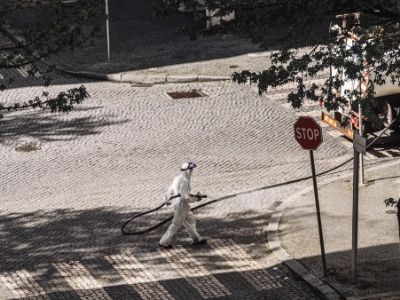The MOM Guidelines During COVID-19 Outbreak

Singapore’s tripartite partners have acknowledged that employers have begun implementing measures to save on costs. This will help them survive an uncertain economy.
Since the advisory was meant to help affected employers, they are encouraged by the government to only result in retrenchment if there are no other options left.
The MOM wants to guide employers on human resources (HR) policies. They want to set specifically when it comes to treating employees who want to travel outside Singapore. This is regardless if they are travelling for work or not during the COVID-19 outbreak.
In case you must know about these guidelines, you will know more about it from this post.
Updates From June 2020
- In June 2020, the circuit breaker will end. Singapore started a three-phased approach so they can continue activities safely. When it comes to the measures in minimizing the risk of the virus, Singapore enhanced its safety practices in the workplace. The effective implementation of the measures will also help avoid the necessity to restore tight measures.
- The MOM, BCA, and ESG will come forward to take action in catching employers who do not follow the guidelines. These could include ceasing to issue work orders and financial penalties.
- The tripartite partners – MOM, NTUC, and SNEF are going to issue details on safe management measures so that employers may resume operations. These requirements are for general settings in the workplace. Certain workplaces such as construction worksites might be required to fulfil more requirements.
- For plans in work travel, employers must review and stop all non-essential travel-based, according to the advisory. Instead, they must look for other ways of communication like hosting video conferences.
Providing More Leave if Work Travel is Necessary
In case work-related travel is unavoidable, employers must make sure that their health is protected based on the MOM guidelines.
Employers must provide more days of paid leave to the employee to cover the following:
- The quarantine period is imposed by the destination country before the employee may enter the country with no restrictions.
- The delay of the employee’s return to Singapore because of circumstances like availability of flights, the need for MOM’s pre-entry approval so the foreign employee may return, etc.
- The stay-home notice that an employee must present when they return to Singapore.
Employers must also honour the request of employees not to take work-related travel,. Also, they must not be penalized for making the request.
Employees Must Be Able to Work From Home
- A work-from-home set up must be the default mode when they go back to work. Employees who have always worked from home must continue with that and only report to the office if there is no other choice.
- For employees who cannot work from home, employers must review the work processes, give the proper IT equipment to the employee and provide solutions that make work from home collaboration possible. Employers must leverage technology to make sure the business continues under safe management.
- Employers have to cancel events that involve close and prolonged contact with others like exhibits, seminars, and conferences.
- Companies should still hold meetings online. The physical meetings of employees and suppliers or contractors must be lessened.
- Companies must prioritize vulnerable employees. Aside from allowing them to work from home, they can also put these vulnerable employees on another role for the time being.
Travel That is Non-work Related
Employers must remind employees about the travel advisory of MOM.
Employers must obtain travel declarations from the employees. This is when they have plans to travel overseas which includes affected areas with mandatory stay-home notice setups. However, it is not only limited to travelling to affected areas.
In case the employee still goes on a non-essential trip, employers could ask the employee to use their own leave entitlements for the year to cover the stay-home notice duration, LOA, or any extended travel period.
Flexible Schedule of Work
While businesses are slow during this time, employees could reduce the weekly work hours and create a “time bank” of the unused hours. They can use these to avoid the work hours increase in subsequent periods.
When they offset overtime pay in the future, the employee or union may agree on the hourly pay rate. Employers who want to implement a flexible work schedule must seek employee support and their union. Then, they can send an application to the Commissioner for Labor.
Cost-saving Measures Must Be Reported to MOM
This took effect in March 2020. Employers had to notify the MOM if they started cost-saving measures that affect the monthly salaries of employees, and say that they did it fairly.
This requirement is applicable to employers with at least 10 employees. This is for temporary measures until the economy is back to normal.
It encourages a responsible implementation of these measures, avoids disputes of salary, and permit MOM to check the scope and scale of these measures. It also enables tripartite partners to provide the necessary support for employees and employers.
Upskilling and Training
The advisory also points out that when business is on a downturn, training and upskilling employees greatly benefit employers.
Employers can retain their skilled employees so the company meets business demands when rebounds are demanded.
Employees can take the chance to update their skills and knowledge so their productivity improves.
Socializing Must Be Minimized
- Employers have to make sure that employees do not gather in groups while at work. This includes mealtime or breaks. Employees must be allowed to eat meals or take breaks at the time they decide to.
- Social gatherings are cancelled or deferred in the workplace.
- Employers must not organize social gatherings outside and must remind employees they must not socialize outside during or outside the work hours. This includes going out with colleagues from other teams/worksites/shifts.
Wear a Mask in the Workplace
Employers have to make sure that onsite personnel such as the employees, suppliers, contractors, and visitors are wearing a mask and other protective equipment they need, except if they are required to take them off.
- Employers should see to it that all employees are supplied with masks, including the replacements because of workplace conditions like humidity.
- If possible, employers must think of improving the work environment of employees so they can comfortably wear masks in the workplace.
Employers to Bring Pass Holders
While activities are resumed after the circuit breaker phases, the work pass requirements have been changed during the COVID-19 outbreak.
Pass holders have to obtain entry approvals from the right government agencies before entering Singapore. When they enter, they have to serve a stay-home notice.
However, for people who convey important services or supplies that come from Malaysia by land or sea do not have to undergo the SHN requirements for approval.
- If you are a Malaysian work pass holder or permanent resident and want to enter Singapore by land, you can do the Periodic Commuting Arrangement (PCA) Scheme.
- Other pass holders, including the ones on the in-principle approval (IPA), Letter of Consent (LOC), Long Term Visit Pass, and Dependent’s Pass must obtain MOM’s approval before entering Singapore.
Minimize Physical Touchpoints
Employers must lessen the occurrence for the common physical touchpoints when it is possible like putting contactless access control during the COVID-19 outbreak. If physical contact cannot be avoided, more safety precautions must be done to lessen cross-infection risk.
More Thorough Cleaning of Workplace Premises
- Employers have to be sure that common spaces are cleaned, especially in areas with a lot of human contacts. Where they hold meetings or eat meals in common areas like pantries or canteens, the tables and area must be cleaned. The area must be disinfected before and after a meeting.
- Employers must make sure that any equipment and machinery that are shared between employees on different shifts or other teams are cleaned and disinfected.
Leave of Absence (LOA) Support Program
There’s an extension for the LOA support program so that businesses and self-employed individuals who were affected by the SHN will not be applied to those who travelled after March 15.
Employers and those who are self-employed will receive daily support of S$100 if they must serve an SHN mandatory requirement if they travelled outside Singapore on or before March 15.
For Foreign Employees
Employers with foreign employees that reside in dormitories must wait for the dormitories to have a clearance before they can buy air tickets so they can go home.
Also, employers have to make sure that employees are not serving an SHN or quarantine order on their departure date.
Regular Temperature Checks in the Workplace
Employers have to check the temperatures of employees on-site to see if they have respiratory symptoms including their visitors. It must be done twice a day or whenever it is relevant. Employers have to demonstrate these checks and inspections daily.
If there is an unwell employee, employers must take precautions to keep them from infecting others. This is also to prevent outbreaks in the workplace. Employers must be quick to respond if an employee tests positive to help them recover and prevent contamination.
These are the MOM guidelines for employers in the midst of COVID-19 outbreak. It is important that employers follow all the guidelines and do their part in stopping the spread of the virus.
If you are a business owner in Singapore and need HR consultancy services, you can seek the help of 3E Accounting to assist in hiring the right employees. You cannot afford to take a risk in hiring employees who will not comply with the safety precautions. This is to prevent the spread of the virus in the workplace during the COVID-19 outbreak. It is important that you, as an employer, know what to do in times like this.









